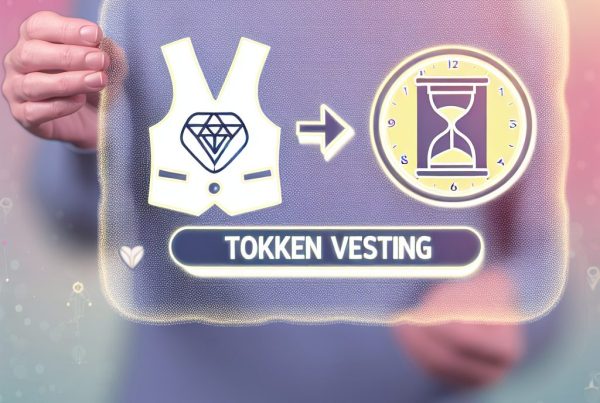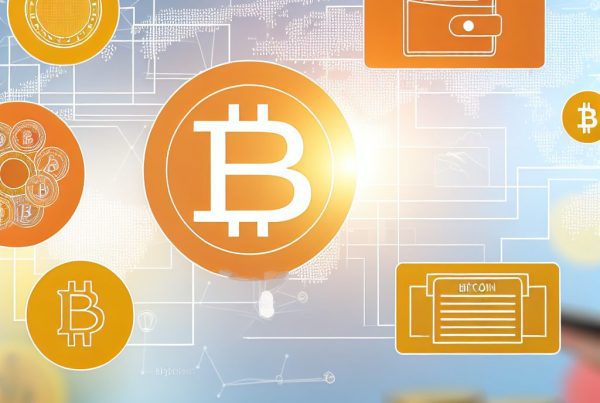How to Use Decentralized Exchanges Effectively
The rise of decentralized exchanges (DEXs) has transformed the cryptocurrency trading landscape, offering users greater control, privacy, and security. Unlike traditional centralized exchanges, DEXs operate without a central authority, allowing users to trade directly with one another. This article delves into the effective use of decentralized exchanges, providing insights, strategies, and tips for both novice and experienced traders.
Understanding Decentralized Exchanges
Decentralized exchanges facilitate peer-to-peer trading of cryptocurrencies without the need for intermediaries. They leverage blockchain technology to ensure transparency and security. Here are some key features of DEXs:
- Non-Custodial: Users retain control of their private keys and funds.
- Privacy: DEXs often require minimal personal information, enhancing user privacy.
- Global Access: Anyone with an internet connection can access DEXs, regardless of their location.
- Variety of Tokens: DEXs typically support a wide range of tokens, including those not listed on centralized exchanges.
Popular Decentralized Exchanges
Several DEXs have gained popularity due to their unique features and user-friendly interfaces. Here are a few notable examples:
- Uniswap: A leading DEX on the Ethereum blockchain, known for its automated market-making (AMM) model.
- SushiSwap: A community-driven DEX that offers additional features like yield farming and staking.
- PancakeSwap: The go-to DEX for Binance Smart Chain users, offering low fees and fast transactions.
- Curve Finance: Specializes in stablecoin trading, providing low slippage and efficient swaps.
Setting Up for Success on DEXs
To effectively use decentralized exchanges, follow these essential steps:
1. Choose the Right Wallet
Your choice of wallet is crucial for trading on DEXs. Opt for a wallet that supports the tokens you wish to trade and offers robust security features. Popular options include:
- MetaMask: A widely used browser extension wallet that supports Ethereum and ERC-20 tokens.
- Trust Wallet: A mobile wallet that supports multiple blockchains and tokens.
- Ledger: A hardware wallet that provides enhanced security for long-term storage.
2. Fund Your Wallet
Once you have selected a wallet, fund it with the cryptocurrency you intend to trade. You can purchase crypto from a centralized exchange and transfer it to your wallet or acquire it directly through a DEX.

3. Connect to a DEX
After funding your wallet, connect it to your chosen DEX. This process typically involves:
- Visiting the DEX website.
- Selecting the option to connect your wallet.
- Following the prompts to authorize the connection.
Executing Trades on DEXs
Executing trades on a DEX can differ from traditional exchanges. Here’s how to navigate the trading process:
1. Select Trading Pairs
Once connected, choose the trading pair you wish to trade. For example, if you want to trade Ethereum (ETH) for Bitcoin (BTC), select the ETH/BTC pair.
2. Set Trade Parameters
Input the amount you wish to trade and review the transaction details, including:
- Slippage Tolerance: Adjust the slippage tolerance to account for price fluctuations during the transaction.
- Transaction Fees: Be aware of the gas fees associated with the transaction, especially on networks like Ethereum.
3. Confirm the Trade
After reviewing the details, confirm the trade. Your wallet will prompt you to approve the transaction, which may take a few moments to process.
Strategies for Effective Trading on DEXs
To maximize your trading experience on decentralized exchanges, consider the following strategies:
1. Research and Analysis
Conduct thorough research on the tokens you plan to trade. Utilize resources like CoinGecko and CoinMarketCap for market data and trends.
2. Utilize Limit Orders
Some DEXs offer limit orders, allowing you to set specific price points for buying or selling tokens. This feature can help you avoid unfavorable market conditions.
3. Monitor Gas Fees
Gas fees can vary significantly based on network congestion. Use tools like ETH Gas Station to monitor current gas prices and choose optimal times for trading.
4. Diversify Your Portfolio
Don’t put all your funds into a single token. Diversifying your portfolio can mitigate risks and enhance potential returns.
Security Best Practices for DEX Users
While DEXs offer enhanced security compared to centralized exchanges, users must still take precautions. Here are some best practices:
- Enable Two-Factor Authentication (2FA): If your wallet supports it, enable 2FA for an added layer of security.
- Use Hardware Wallets: For long-term storage, consider using a hardware wallet to protect your assets from online threats.
- Be Wary of Phishing Scams: Always verify the URL of the DEX and avoid clicking on suspicious links.
Common Challenges When Using DEXs
While DEXs offer numerous advantages, they also come with challenges. Understanding these can help you navigate the landscape more effectively:
1. Liquidity Issues
Some trading pairs may have low liquidity, leading to higher slippage and less favorable prices. Always check the liquidity of a pair before trading.
2. User Experience
The user interface of some DEXs can be less intuitive than centralized exchanges. Take time to familiarize yourself with the platform before executing significant trades.
3. Regulatory Concerns
As the regulatory landscape for cryptocurrencies evolves, DEXs may face scrutiny. Stay informed about regulations in your jurisdiction to ensure compliance.
Case Studies: Successful DEX Usage
Examining real-world examples can provide valuable insights into effective DEX usage. Here are a few notable cases:
1. Uniswap’s Impact on DeFi
Uniswap has played a pivotal role in the decentralized finance (DeFi) movement, enabling users to trade tokens without intermediaries. Its innovative AMM model has inspired numerous other projects, demonstrating the potential of DEXs in creating liquidity and facilitating trading.
2. SushiSwap’s Community-Driven Approach
SushiSwap began as a fork of Uniswap but quickly evolved into a community-driven platform. By offering unique features like yield farming and governance tokens, SushiSwap has attracted a loyal user base and showcased the power of community engagement in the DEX space.
Frequently Asked Questions (FAQs)
What is a decentralized exchange?
A decentralized exchange (DEX) is a platform that allows users to trade cryptocurrencies directly with one another without a central authority or intermediary.
How do I start trading on a DEX?
To start trading on a DEX, you need to set up a compatible wallet, fund it with cryptocurrency, and connect it to the DEX platform of your choice.
Are DEXs safe to use?
While DEXs offer enhanced security compared to centralized exchanges, users must still follow best practices, such as using secure wallets and being cautious of phishing scams.
What are the fees associated with DEXs?
DEXs typically charge transaction fees, which can vary based on network congestion and the specific platform. Always check the fee structure before trading.
Can I trade any cryptocurrency on a DEX?
Most DEXs support a wide range of tokens, but availability may vary. Always check if the token you wish to trade is listed on the platform.
Conclusion
Decentralized exchanges represent a significant advancement in the cryptocurrency trading landscape, offering users greater control, privacy, and security. By understanding how to effectively use DEXs, traders can navigate this innovative space with confidence. From selecting the right wallet to employing effective trading strategies, the key to success lies in thorough research and prudent decision-making. For the latest updates and insights in the crypto world, consider visiting Bitrabo.
Disclaimer: This article is for informational purposes only and should not be considered financial advice. Always conduct your own research and consult with a financial advisor before making investment decisions.
The Crypto Watchlist of the Week 🔎
Subscribe to receive expert-curated projects with real potential—plus trends, risks, and insights that matter. Get handpicked crypto projects, deep analysis & market updates delivered to you.


